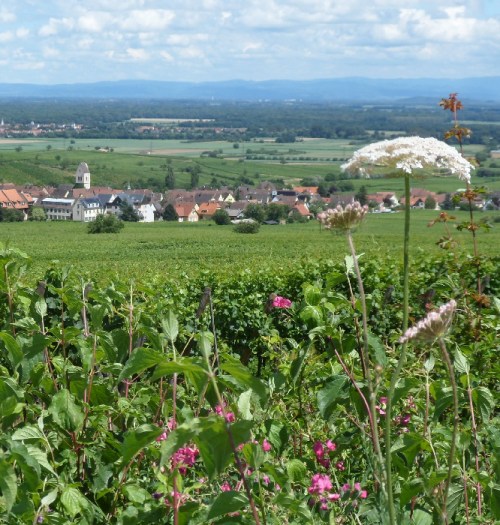
4th SoMaS SCHOOL
SOFT MATERIALS UNDER EXTERNAL CONSTRAINTS
ANNUAL SUMMER SCHOOL
JULY 6-11, 2014
Mittelwihr, France
Soft matter science is an interdisciplinary field of research, attracting attention from chemists, physicists, biologists and engineers as well. To some extent this appeal comes from the amazing properties of “soft materials”, e.g., from their unique capability to respond to external stimuli. Even weak stimuli may induce significant changes in behavior due to the softness and mesoscopic structuring of these materials. Softness results from weak interactions - comparable to thermal fluctuations - between the constituents, whereas mesoscopic structuring is often a consequence of self-assembly, i.e., of the spontaneous organization of matter into ordered arrangements much larger in size than the constituent molecules.
Many of today's interesting systems consist of multiple components, have various interfaces, and exhibit complex effective interactions. Understanding the synergies between the regulating factors, thus predicting and controlling their impact on material properties, is a great scientific challenge. Advances in this direction should enable the creation of novel materials with a high level of functionality similar to those existing in nature.
Main objectives of the SoMaS Summer School:
- Introducing young researchers (PhD students, PostDocs, MSc students) through interdisciplinary lectures to the field of soft matter science
- Integrating young researchers in the scientific community of soft matter and initiate cooperation between the participants
- Providing information on the different career opportunities after a PhD in soft matter science
To this end the SoMaS Summer School 2014 deploys the following tools:
- Basic knowledge is provided through a series of introductory courses dealing with glass-forming polymers, colloidal suspensions, structure formation in soft matter materials.
- The field of each course will be complemented and illustrated by research seminars and intensive discussion in rework seminars.
- In order to boost scientific exchange, all participants shall present their results and, most importantly, their questions and strategies in the form of posters.
- Several sessions on career prospects will complete the school.
PhD and master students can obtain 3 ECTS points for the scientific units and 1 ECTS point for the career seminars.

